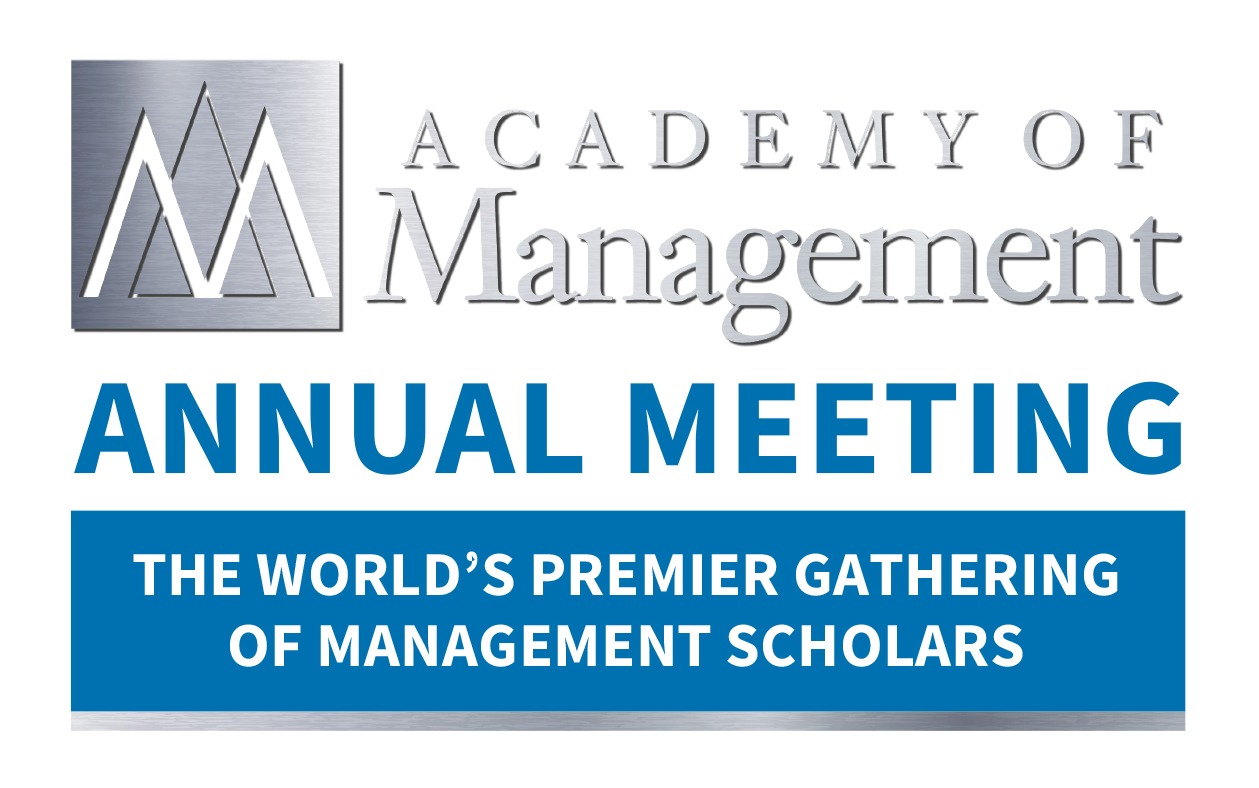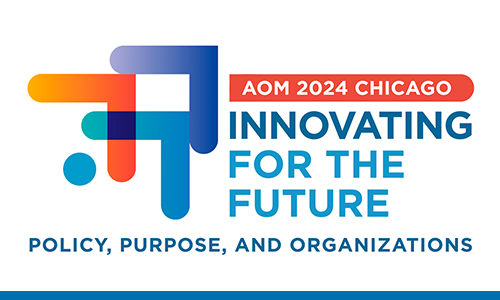Management, Spirituality and Religion Division (MSR)
Professional Development Workshop (PDW) Call for Submissions
Chair: Payal Kumar, Indian School of Hospitality, India
- Submission Center Opens: Early December 2024
- Submission Deadline: Tuesday, 7 January 2025 at 17:00 ET (UTC-5/GMT-5)
- PDWs will take place Friday, 25 July through Sunday, 27 July 2025
The Management, Spirituality and Religion (MSR) Interest Group cordially invites you to submit a Professional Development Workshop (PDW) proposal for the 85th Annual Meeting of the Academy of Management (AOM 2025) to be held in person from 24-29 July 2025 in Copenhagen, Denmark. As a global community, MSR affirms its commitment to the continual process of becoming conscious of, and then working to dismantle, structures of oppression in the spaces of our work and practice. This includes spaces of teaching, research, and service. It also includes the processes and practices related to academic research conferences, including this MSR PDW proposal process.
Towards that end, five characteristics of an exemplary PDW submission are described here.
- 1: PDWs are intended to be developmental—they are investments in deepening our scholarly practices (e.g., research, writing, teaching, etc.) while remaining conscious of alternative ontologies, epistemologies, and ways of being and relating in the world.
- 2 & 3: PDWs offer space for creativity and for experience as one way to move out of the domain of intellect and cognition, and to recognize and value the knowing that occurs through movement, art, music, etc.
- 4 & 5: PDWs are often spaces for community building and scholarly activism. Cross-generational, cross-national, and cross-AOM division relationships can be forged in PDWs through careful planning and mindful attention in PDW design. Consciousness of structures of oppression and how they manifest around the world can catalyze scholarly activism, emancipatory pedagogies, and transformational research methods based on, for example, indigenous ways of knowing or non-Western logics.
PDWs Are Developmental
PDWs are distinct from scholarly program sessions because PDWs focus on personal and professional skill development. This is an opportunity to ‘teach the teacher’ or ‘develop the researcher’ by sharing your expertise to generate opportunities for learning and development. As such, PDWs should not mimic scholarly sessions; for example, it is not appropriate to suggest a series of academic papers with minimal audience involvement. Rather, the goal of PDWs is on learning and development of scholar/educator skills and ways of being a scholar/educator.
While all submissions will be rigorously and fairly reviewed, submissions that focus on developing research and publishing expertise will be favored. This includes a warm welcome to alternative, indigenous, and newer genre methods and paradigms.
PDWs Are Creative
PDWs are places for experiencing diverse modalities of learning and development beyond the typical intellectual/cognitive processes found in traditional scholarly research presentations. PDWs can take a variety of forms: tutorials intended to develop research or teaching skills, debates, creative/artistic sessions, roundtable discussions, interactive panels, site visits, service-learning activities, and other activities that could help attendees develop professionally. The possibilities are endless as long as an event deepens scholarly practice and/or brings skill enhancement to the participants in terms of their professional activities.
PDWs are Experiential
PDWs are spaces for active engagement in discussion or experiential activities rather than passive listening. Scholars and educators bring their whole selves into the PDW for growth and development, and experiential opportunities are a critical component of the pedagogy. Movement, drawing/journaling, debates, games, and facilitated conversations are all elements that can catalyze deep learning and development in a PDW.
PDWs are Community Building
PDWs offer an excellent opportunity to move outside the boundary of a single division to explore issues and ideas across divisions. When you submit a PDW proposal, consider how you might design the session to attract and involve a broad audience from across the AOM membership. PDWs are excellent opportunities to learn about research and teaching practices in other countries and to develop potential collaborative projects. They can be a vehicle to bridge research and practice by engaging practitioners and scholars in dialogues on their mutual challenges and aspirations.
PDWs are Opportunities for Enhancing Scholarly Activism
Especially for the domain of MSR, developing expertise in or consciousness of the role of activist teaching, research, and service for the betterment of humanity and the planet is highly valued. Scholarly activism can catalyze social change through research, teaching, and service, and it can impact real world events, narratives, and trends.
The conference theme
This year MSR Division's theme is centered on the development of Higher Consciousness - a timely and significant topic. We seek contributions that examine higher consciousness in leadership, decision-making, organizational culture, and well-being. How can it help leaders navigate today’s complexities and turbulence? What insights from spirituality, philosophy, and psychology can transform business and society? Topics such as:
- Consciousness in leadership and decision-making
- Spiritual practices and organizational transformation
- Well-being, mindfulness, and ethics in business
- Cross-cultural perspectives on spirituality
- Artificial Intelligence and development of consciousness
There is ample opportunity for us, who teach, research, and guide others in business performance, to join forces toward more intense collaboration, with greater mutual acceptance, and transcendence of limiting biases and other mental boundaries. PDWs focused on this theme are welcome, but we also welcome non-thematic proposals about other topics within the MSR domain including, but not limited to, developing our members’ capacity to research and teach about the nature, influence and relationship of spirituality and religion in management and organizations.
PDW proposals must include
- A title and AOM assigned submission number (in the proposal and in the file name).
- A primary sponsor and other potential sponsors.
- An abstract of up to 250 words.
- A 3-5 page workshop overview.
- A case for why the PDW would be of interest to MSR and potential co-sponsors.
- A description of the chosen format for delivery.
- An attendance commitment. Upon acceptance, at least one author or participant must commit to attending the conference. An explicit written statement of commitment is required (e-mail is acceptable).
- Key words capturing the most important aspects of your proposed session PDW.
- Missing any of these items means proposals will not be reviewed or evaluated for acceptance.
A few technical rules to keep in mind
- PDWs proposals must be for a minimum of 1 hour in duration.
- The PDW Chair has the ability to decrease the duration of any submitted Professional Development Workshop if he/she feels it would better serve the Interest Group’s member experience. The minimum amount of time a PDW can be reduced to is 1 hour.
- The "rule of three" applies: individuals may submit, appear in, or be associated with up to three PDWs.
Final Notes
- Submitters do not need to be members to submit a proposal to the Annual Meeting.
- However, if a proposal is accepted, participants must register to attend the Annual Meeting.
Submitters who are unclear about the submission process, please review the submission guidelines.
 85th Annual Meeting of the Academy of Management
85th Annual Meeting of the Academy of Management
(AOM 2025)
25-29 July 2025
Copenhagen, Denmark
Key Dates
- Submission Center Opens:
Early December 2024 - Reviewer Signup Opens:
Early December 2024 - Submission Deadline:
7 January 2025
17:00 ET (GMT-5/UTC-5) - Review Period:
16 January-13 February 2025 - Housing Opens:
Late January 2025 - Registration Opens:
Early March 2025 - Decision Notifications:
Late March 2025 - Program Available:
June 2025 - 85th Annual Meeting:
In-person
25-29 July 2025
Copenhagen, Denmark
